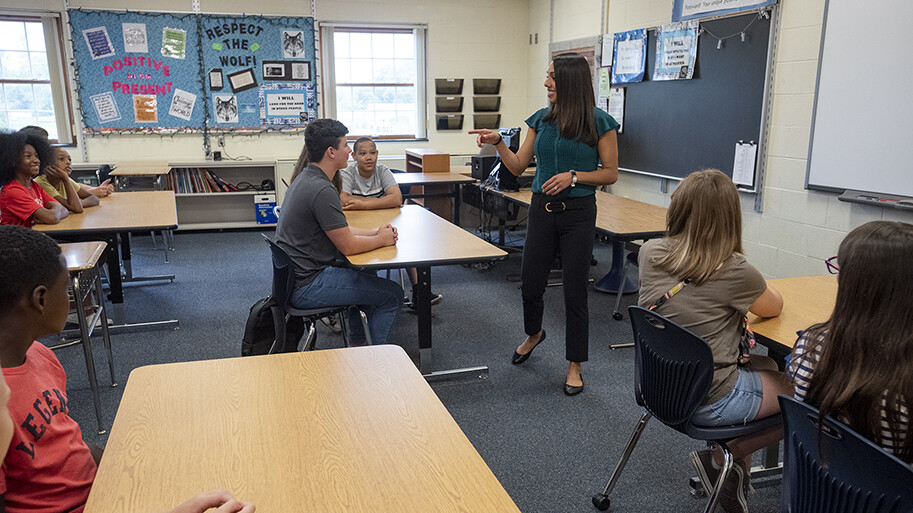The Middle Childhood Generalist Endorsement is added to the Ohio Department of Education Middle Childhood Teaching License. The Ohio Department of Education has approved the Middle Childhood Generalist Endorsement license that can only be added to any existing Middle Childhood license and for any combination of the four areas of concentration. The generalist endorsement will allow teachers to teach grades 4-6 only. Candidates will only be allowed to obtain this license from an approved institution that has an approved generalist program in any of the four concentration areas (Language Arts, Social Studies, Science, and Math).
Middle Childhood Endorsement for Language Arts
In addition to the Core Curriculum Requirements (ENG 101: Composition I: Essay Writing, ENG 102: Composition II: Research & Writing, ENG 200: Introduction to Literature) the candidate must take the following two courses:
EDU 221 Content Area Reading
ENG 313 Theoretical Approaches to the Teaching of Writing
The candidate must also pass the OAE Test for Middle Childhood Language Arts OR pass the OAE Elementary Education Content Knowledge Subtest I and II.
Middle Childhood Endorsement for Social Studies
The candidate must take the following courses, one of which can be used to meet the Social Science General Education requirement:
PLS 122 American National Government
GEO 250 World Cultural Geography
HST 219 Ohio History
HST 121 Survey of United States History I
The candidate must also pass the OAE Test for Middle Childhood Social Studies OR pass the OAE Elementary Education Content Knowledge Subtest I and II.
Middle Childhood Endorsement for Mathematics
The candidate must take the following two courses:
MTH 114 Mathematical for Principles for Educators II
MTH 116 Math Pedagogy for Middle Childhood and AYA Teachers
The candidate must also pass the OAE Test for Middle Childhood Mathematics OR pass the OAE Elementary Education Content Knowledge Subtest I and II.
Middle Childhood Endorsement for Science
The candidate must take the following two courses:
SCI 170 Survey of Science
SCI 370 Integrated Science for Teachers
The candidate must also pass the OAE Test for Middle Childhood Science OR pass the OAE Elementary Education Content Knowledge Subtest I and II.
PRIMARY EDUCATION
The Primary Education Generalist Endorsement is added to the Ohio Department of Education Early Childhood P-3 teaching license. The Primary Education Endorsement, valid for teaching all core academic content areas in grades four and five may be added to an Early Childhood P-3 license upon evidence of completion of a minimum of nine additional semester hours of study aligned to the Ohio academic content standards for grades four and five, including preparation in pedagogy and child/adolescent development appropriate for grades four and five, and upon successful completion of the Generalist Endorsement for Primary Education – OAE Elementary Education Subtest I #018 Passing 220 and OAE Subtest II #019 Passing 220.
The three courses, nine semester hours, at the undergraduate level are:
EDU 375 Nature and Needs of Young Adolescents
EDU 380 Math and Science Pedagogical Skills and Content for Teachers of Gr. 4-5 students
EDU 385 Social Studies and Language Arts Pedagogical Skills and Content for Teachers for Gr. 4-5 students


